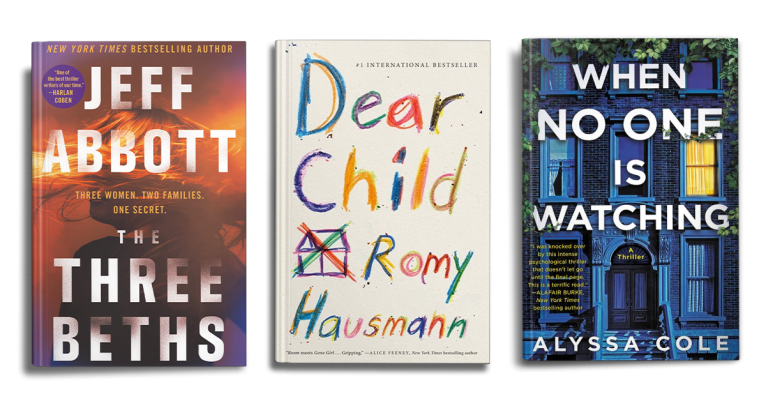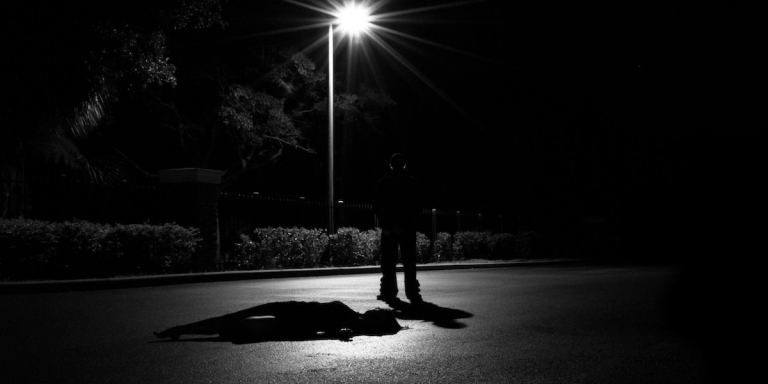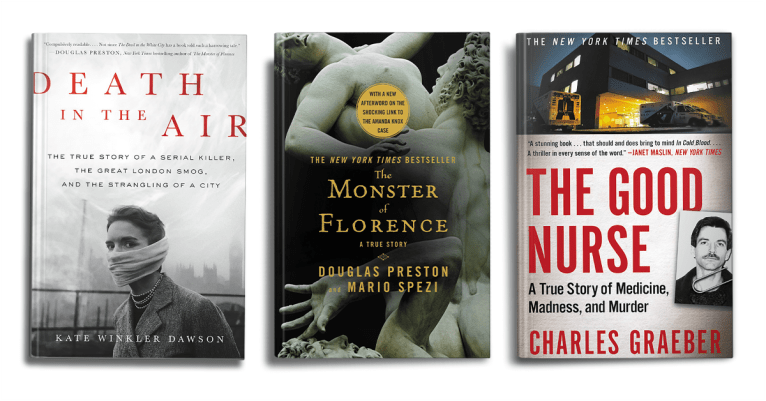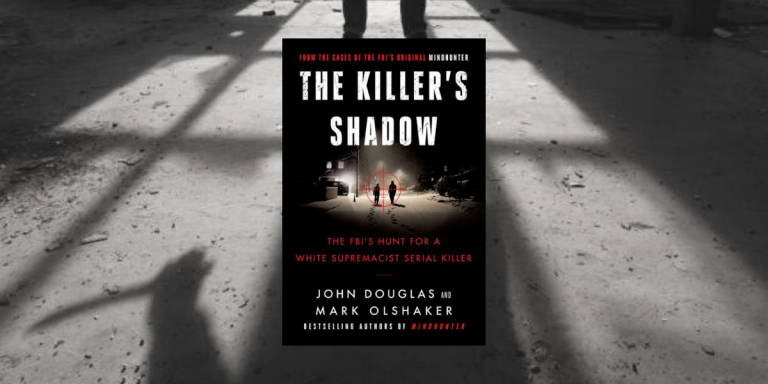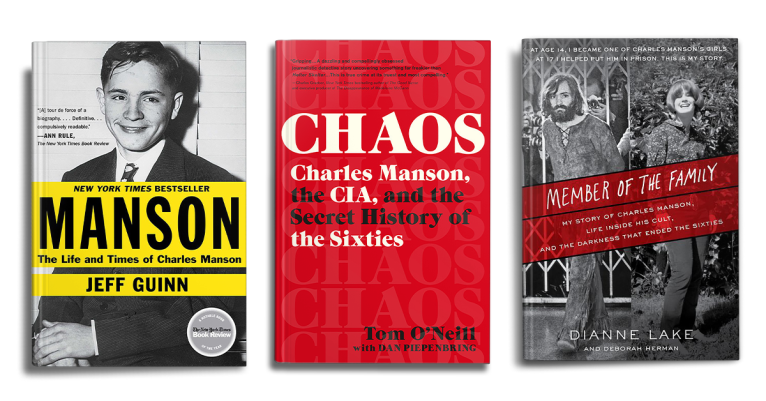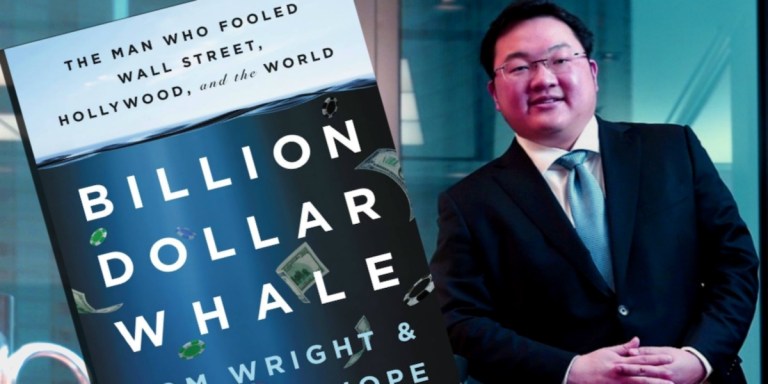Read The Excerpt: Prodigal Son by Gregg Hurwitz
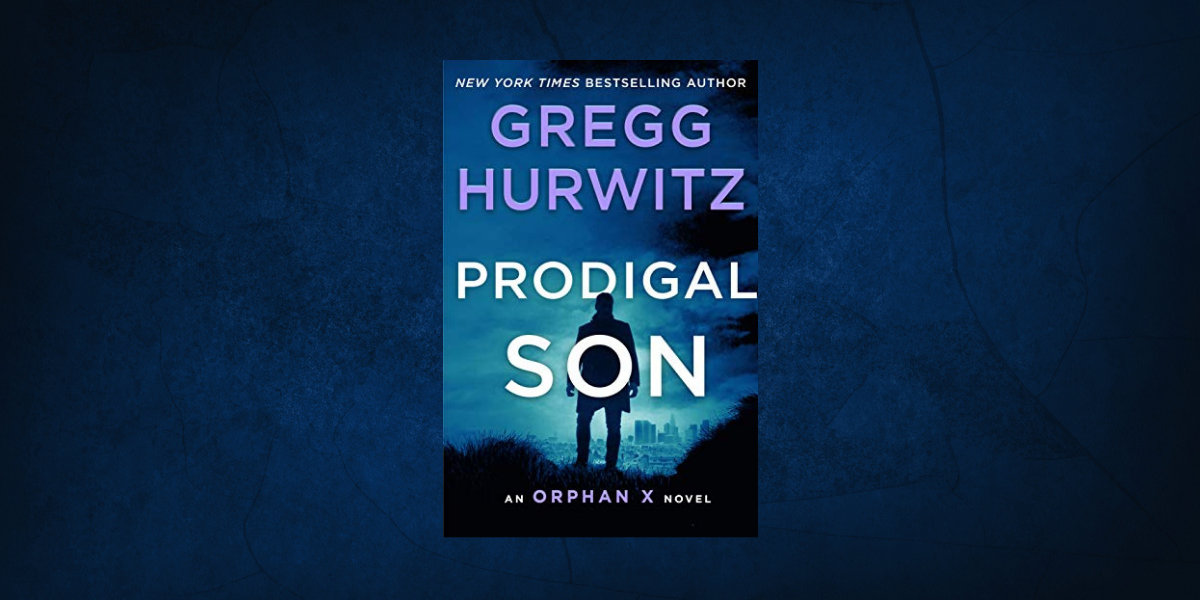 From Prodigal Son: An Orphan X Novel (c) 2020 Gregg Hurwitz, reprinted by permission.
From Prodigal Son: An Orphan X Novel (c) 2020 Gregg Hurwitz, reprinted by permission.
1
A New Brand of Danger
A stir moves through the Pride House Group Home, and seconds later adolescent faces pig against the muggy front window. Evan, at twelve, still has not hit his growth spurt. He jockeys for position and loses, Charles Van Sciver’s elbow knocking him to the rear of the pack. A tiny gap opens between Tyrell and Jamal, and Evan catches a fleeting glimpse of a slender man disappearing around the fence of the cracked basketball courts across the street. The conversation wafts back at him.
“Well? Was that the guy?”
“I dunno, Charles. Looks like him.”
“Real helpful, shitbird.”
The herd is unsupervised, which is never good. Papa Z, the sturdy Polish-American house father, has retired to the bathroom with the Baltimore Sun. The fact that it’s a Sunday edition, paired with his chronic and oft-referenced constipation, means he could be missing for hours.
Van Sciver leads the way, naturally, as they spill out of their gone-to- hell row house in the shadow of the high-rise Lafayette Courts projects. They reach the asphalt park and spread out, only seven kids today because Danny got yanked into juvie and Andre’s been missing since Friday, no doubt on another fantasy quest looking for the parents he never knew. Nothing to see but brick and concrete, sweaty in the August humidity, and the usual junkies and corner boys. Cookie-cutter row houses stare back from all sides like crooked teeth.
“I swear it was him again,” Tyrell says.
The boys are adrenalized by the Mystery Man’s reappearance. He materializes at intervals, eyeing the boys as they strut and roughhouse in the park, the sun glinting off his gold watch. Masked by black Ray-Bans, he smokes through his pack with conveyor-belt efficiency, and when he finally moves, he walks at a leisurely pace, his fingers skating along the chain- link. The theories are endless—he’s a weenie-wagger; he’s a real-estate tycoon from Streeterville looking to adopt; he’s a cannibal who subsists on young flesh.
Van Sciver circles them up. “Get over here. Everyone over here!”
The blue bandanna is cinched around his forehead as always, his reddish blond bangs falling over the band of fabric. He’s a head taller than every- one except Ramón, but Ramón’s built like a skeleton so the height doesn’t get him much respect. Van Sciver wears a sleeveless Washington Red- skins shirt to show off his biceps, which bulge enough to have grooves in them already. His upper lip sports a few scraggly hairs and a dried smear of the protein muscle drink he downs religiously every morning, mixed powder from the canister he painstakingly saves up for each month, the canister the other kids dare not touch.
Though he’s just two years older than Evan, they might as well be different species. They’ve tangled only twice, Van Sciver bloodying Evan’s nose when Evan stood up to him for cheating at blackjack, and splitting his lip for backing Tyrell, whose sister is a whore but who probably doesn’t need to be reminded of it as often as Van Sciver thinks he does. Van Sciver came into the home when his dad got nailed for a bank heist, which makes him royalty in this zip code. A few coveted photographs and a yellowed newspaper clipping confirm his provenance.
Evan on the other hand is without the benefit of a rousing lineage. He simply appeared like something mythical—Moses in a basket of pitch-darkened bulrushes, Athena springing fully formed from the brow of Zeus. From various social workers, he’d gleaned only the barest facts about his origin. That his birth mother had traveled from out of state to turn him over for adoption in Maryland when he was six days old. That his first adoptive mother had been debilitated by a series of strokes she’d kept secret, right up until she and her overwhelmed husband had dropped Evan back into the system. Since Evan’s birth mother had retained the right to select the adoptive family, his fate was frozen while social services tried to locate her. But young women who travel out of state to relinquish newborns don’t want to be identified, let alone found. By the time the bureaucracy had unsnarled itself sufficiently to declare him “abandoned,” he’d knocked around a series of homes. Even by the time he was four years old, his face had grown guarded, no longer a blank slate upon which a couple could project their dreams. He had a whiff of inferiority about him, another kid fit for the damaged-goods bin.
Papa Z’s group home is the latest stop on the merry-go-round. Five to fifteen kids on perennial rotation, graduating to trade school or jail or jobs involving wrenches and name-patch coveralls. The choices are few, the outcomes predetermined, the tracks laid pointing to a dismal future. That is what is so intriguing about the Mystery Man and his gold watch, no matter how awful his intentions may be. He does not belong to this world, to these city blocks. He represents not just a new brand of danger but a new road to a new place, and any route out of East Baltimore is a good one.
Van Sciver says, “I talked to Eddie in Paco’s garage who talked to his cousin who said the Mystery Man takes kids and turns them into something.”
Turns them into something. But what? The only point of reference Evan has for this comes from the army recruiting office across from the arcade in the mall. In between rounds checking the video-game change slots for forgotten quarters, he and Tyrell watch the slouchy teenagers go through that glass door bearing the decal of the American flag. They always come out a little straighter.
They come out men.
Ramón’s voice cuts through Evan’s reverie. “Turns them into sex-slave dicksuckers,” he says, and a few kids risk snickers.
But Van Sciver continues, undeterred. “Eddie’s cousin? He said he knew a guy came up in a Westside home—New Beginnings?—and that guy said the Mystery Man picked another kid, the best kid, out of the group. The tallest. The fastest. The strongest. And that kid? One day he just vanished.” He draws out the pause, the boys huddling closer, still breathing audibly from their dash across the street. Now it’s no longer a story but an urban legend, a campfire ghost story, and somehow that makes it more real. Evan senses some dark truth in the spaces between the lies. Van Sciver has let the cliffhanger linger long enough. Conspiratorially, he looks left, right, then back at the group. “Four years later he came back. For a day.”
A block or two over, a car is blaring Run-DMC with the bass cranked up high. The sound fades. Tyrell’s sneaker scrapes the asphalt as he leans in even closer. “And?”
“He was built,” Van Sciver says. “Muscles like this. And badass. Had a scar across his cheek. And a Porsche.”
The details are delicious, tantalizing. Evan’s stomach pitches with excitement, as if he’s in roller-coaster free fall.
A wino shuffles by tangentially, and Van Sciver shoots him a hostile glare. “Get the fuck outta here, Horace.” Back to his captive crowd. “This guy, he said he went to a house—best house ever. A real home. Hot meals three times a day and Nintendo and a pool. You get your own room. Said they trained him.”
“To do what?” Evan asks.
Van Sciver has to look down to meet his eyes. “No one knows.”
2
Serious Business
Sixty-five motherfucking dollars.
That’s all it costs to jar your life off track. No—not just off track. Pile-driven into the side of a mountain like a locomotive blasted off the rails.
That’s why Andrew Duran was here working the midnight shift at an impound lot on the East Side, crammed into a booth not much bigger than a doghouse, breathing in the overpowering scent of Old Spice deodorant from Juan, who worked the shift before him. Minimum wage put Duran at $420 a week, but by the time federal, state, Social Security, Medicare, and wage garnishment took a bite outta him, it looked more like $300 out the back end. Which was about $500 less than what he needed to pay for child support and food and a roof over his head, but then again he could be a broke-ass beggar selling smoked-down cigarette butts in Calcutta, so he tried not to complain.
Perspective.
That’s what they talked about on all them self-help podcasts.
That’s what they talked about in the meetings, too. There but for the grace of God. One day at a time. Nothing’s so bad a drink won’t make it worse.
Clichés, sure, but he’d lost enough already not heeding them.
He’d lost everything.
He sighed and stared through the grease-smudged window, king of all he surveyed. Which at the moment was a labyrinth of smashed-to-hell impound vehicles—rusting VW Bugs, wrecked Ferraris, twisted American muscle. Some had blood spatter on the headrests. Others had claw marks scouring the paint jobs at the trunks where the drug dogs got after it. A few, missing wheels, had been hauled in here on the back of a trailer and left for dead.
Duran’s job was to watch over them and sign off on a confusion of forms when cops or tow-truck drivers or beleaguered owners came to claim them.
Cerebral work, this.
How he’d gotten here from owning his own home—even a shitty-ass one-bedroom in the city of El Sereno—he’d never know. Wait, scratch that. He did know.
Sixty-five motherfucking dollars.
For a motherfucking parking ticket he got in the twenty seconds when he ran inside a liquor store to get change for the meter. He’d stopped for lunch in Bakersfield on his way to visit his homey in Kern Valley State Prison eighteen months back. Twenty seconds was all it took.
Duran couldn’t pay it ’cuz he’d promised Brianna he’d hit the child-support mark that month for Sofia, who was turning eleven and needed better clothes for middle school. Which she deserved, ’cuz, shit, she drew the short straw when she got him as a daddy, so the least he could try’n do was help Bri get her some shirts from Walmart instead of the Salvation Army so the kids wouldn’t make fun of her the way he got made fun of his whole damn childhood. So he’d spent the sixty-five bucks on his daughter instead of on the Bakersfield Department of Transportation. And a few weeks later when he was pulled over for a broke taillight ($25 fine, $2 surcharge, $35 court dismissal fee, $115 parts and labor to actually fix the piece of shit), he got another surprise when the cop ran the plates. An outstanding warrant. Turned out that Johnny Mac, Duran’s supervisor on the roof-inspection gig, had put on a half dozen parking tickets when he’d borrowed Duran’s car for lunch runs, and he’d torn up every last one like the Irish fuck he was. On top of that shit, Duran learned he’d already missed a court date he didn’t even know he had, and failure to appear was serious business, even if it was for Johnny Mac’s tickets.
The cop wrote up every last late fee, every penalty assessment, every vehicle-code infraction, the accrued fines tripling and tripling till they had more zeros than the national deficit.
Duran felt himself slumping in the driver’s seat, a punch-drunk boxer on a ring-corner stool. “This is some bullshit,” he muttered. “I was on my way to fix it.”
“You’re one of those, huh?” the cop said. “Nothing’s ever your fault?”
“Nope,” Duran said. “I make plenty of mistakes, just like every- one else. But guys like me don’t catch a break when they need it.”
The cop tore off the sheaf of tickets, handed them through the window, then breathed out a breath that smelled like Tic Tacs. “Ah,” he said, smiling with his shiny white teeth. “Lemme guess. I’m a racist, right?”
“No,” Duran said, “I’m thinking you’re enough of a asshole to do this to rich white dudes, too.”
That didn’t go over so hot.
The courtroom was packed to the gills, all body heat and working-class weariness, the judge hammering through her docket. Duran’s was the seventeenth case that hour.
He had some scrawled notes he’d prepared from late-night online searches, but ever since childhood courthouses had made him nervous. His hands were sweaty enough to make the ink run, and the judge was exhausted and impatient, and he couldn’t really blame her, ’cuz he was stuttering like a idiot and she had a million more cases to get through before lunch.
She’d imposed a civil judgment, the statute getting an upgrade from an infraction to a misdemeanor, and his only real option to clear the warrant was to go to jail. Turns out it was pay-to-stay up in those parts—$100 booking fee, $50 each day inside. A week to get out meant a fat hotel bill and enough missed appointments for Johnny Mac to fire his ass, and in the meantime them parking tickets kept gobbling up interest and penalties like Pac-Man snarfing him some dots.
When Duran hit the outside, he scrambled for work, took whatever he could find. They garnished his wages, but he swore he’d only let that eat into him and not Sofia. For the income he sublet his tiny little house in El Sereno to a Korean businessman who was barely ever in the country but whose checks never bounced. Then Duran sold his car for more cash and rented a not-to-code room above a Chinese kitchen. He mailed a check every month to Brianna with a note to use it well for his little girl.
Who he was too ashamed to see.
Living where he was in a place no social worker would approve for visitation. Dressing like he did. Smelling like he did, the stink of General Tso’s chicken seeping up through the floorboards at all hours. He could hardly stand to look in the mirror. He couldn’t imagine what he would look like to Sofia. He’d been through a lot, but he thought if his little girl looked at him with disgust—or worse, pity—it just might break him for good.
Sofia begged to see him—Bri angrily recounted every last tear for him in their monthly call. And he wanted nothing in the world more than to see her. But something stopped him. An invisible hand on his shoulder, keeping him from stepping forward. That familiar voice in his ear, whispering, You ain’t good enough.
You don’t deserve it.
Not until he paid off the last $775 he owed in fines. Till he moved back into his house like he was his own man and fixed up a proper bed for his little girl to sleep in. Till he saved enough to show up with a properly wrapped toy and take her out for a meal and not worry about if she ordered a soda or got a appetizer, too.
Six months had turned into a year and now a year and change, and he caught himself wondering if he’d be able to face his little girl at all—if she even was still a little girl. Wondering if his shame and pride had already cost him everything. She couldn’t know he was scraping by and washing his sheets in the sink with hand soap so he could honor his child support. She couldn’t know he thought about her every waking minute of the day.
She probably felt abandoned. And rightly so.
He knew that feeling, too, knew it in his gut. It was an old song, calling to him from shore, luring him into the jagged rocks.
His stomach grumbled. A Three Musketeers bar from the cabinet cost fifty cents. He kept most of his money in a zippered pouch because fuck ATM fees. He unzipped it now, counted out the change, and left it in the dish. He knew by heart how much he had in the pouch—$147.85 minus one Three Musketeers bar with the employee discount would leave him with $147.35.
He chewed the chocolaty nougat and thought of the smell of Sofia’s head when she was a newborn. How he’d held her in the hospital first ’cuz Bri was whacked out from the C-section. Sofia had fit right in his arms, that warm tiny body snug between his elbows and wrists when he held her out before him on his lap. Looking down at her, he thought he’d finally done one right thing in this life.
All at once the security monitors on the north wall of the dog-house kiosk turned to fuzz.
They’d never gone out before. He slapped the side of the nearest monitor a few times as if that might help. Then he leaned over and checked the cord connections, but they all looked good.
He was so distracted that he didn’t notice the two people who had walked up to the service window till they were standing right in front of him.
The dude had a thin manicured beard and a high-fashion suit like you wouldn’t believe—some kind of not-quite-velvet with dark blue strips lining the lapels and a handkerchief to match. Duran’s two-sizes-too-big security uniform, made more humiliating by the contrast, itched as he regarded the man. Homey looked like he belonged on a red carpet somewhere instead of a East Side impound lot. He was built too—not a swole prison body but like he spent plenty of time in one of them CrossFit gyms where they jump around and swing kettlebells like circus monkeys.
The woman at his side looked equally out of place here, all shiny and new. The organizing principle of her life seemed to be the color red. Red nails, a red hair scrunchie, red pumps, red lipstick, red buckle on her satchel briefcase. Fluffy blond hair like cotton candy.
Duran was so taken aback he needed a moment to find his voice. “Help you?”
“I hope so.” The man’s voice was slightly too high, almost feminine, and it sure as shit didn’t match his alpha-dog bearing or the way he filled out that suit. “We’re trying to find the man who belongs to that truck.” He spoke properly, but there was a street cadence beneath the words that Duran knew all too well. It was like the guy had listened to a bunch of rich people on TV and was doing his best to imitate them.
Dude gave a nod to a Bronco at the end of the nearest row. Crumpled grille, bashed front panel, wires snarled out from the shattered mouth of the headlight.
Duran hoisted his eyebrows. Out of the corner of his eye, he could see the black-and-white dots dancing on the security monitors. “You don’t look like no Marshals Service.”
“I know,” the woman said sympathetically. “That’s the point.” She had a full face of makeup and was attractive at first glance,
but Duran got the sense that she looked like a different human when that mask was wiped off.
“Jake Hargreave is his name,” Mr. Slick said. “The man who belongs to that Bronco. There was a shoot-out on the 110, and he crashed and abandoned the vehicle. You can see why it’s a necessity for us to talk with him.”
The man produced a badge and held it out for Duran to see, but Duran didn’t know what he should be looking at, so he just tugged at his chin and frowned as if this answered everything.
The woman unbuckled her briefcase and removed an envelope. “We pay our confidential informants,” she said. “For tips.”
She counted ten hundreds from the envelope onto the counter, fanning them like a casino cashier’s cards. Duran could feel his eyes bulging. A grand meant he’d be out from under those loans. Free and clear. That he could find his way back to his house. And then to his daughter.
The woman gathered up the bills, tapped them once on the counter to align them, and slid them into the envelope again. Neat little magic trick, making all that cash disappear.
The man ran his thumb and forefinger around his mouth, smoothing down the glistening chestnut facial hair. “Owners require an appointment to claim their vehicle, is that correct?”
Duran said, “Don’t know if they require it, but pretty much everyone calls first to make sure their car’s here, yeah.”
“When the man sets up his appointment to claim the car, we’d appreciate a heads-up,” the woman said. She raised the envelope, gave it a shake for emphasis, and put it back in her satchel briefcase. “We can take it from there.”
“Why don’t you just pull the files?” Duran said. “If you’re Marshals Service. Track him down your own selves?”
“We have,” the man said, that thin, reedy voice unexpected each time out. “He’s gone to ground. But he needs his truck.” He was smiling again, like he was the most pleasant guy in the world. “And we need him.”
Duran realized he was sweating. Like his body knew something his mind couldn’t grasp.
The man cocked his head. Not meeting Duran’s gaze, but focusing lower, the just-missed eye contact unsettling. “You broke your jaw,” he told Duran. “When you were a child.”
Duran’s hand rose reflexively, touching the spot where a punch had cracked the bone. It was just a hairline, treated with a bag of frozen peas and a paper cup to drool into, and it had left no visible imperfection. At least that’s what Duran had always thought.
“A closed fracture,” the man continued, his eyes lasering in. “Up by the temporomandibular joint. Must’ve hurt something awful.” Duran didn’t like the look in the guy’s eyes. Like he was hungry.
Duran forced a swallow, his throat suddenly dry.
The man finally broke off his gaze, jotted down a phone number on a blank slip of paper, and handed it to Duran. “Carrot or stick,” he told Duran with that amicable smile. “You get to choose.”
They turned and walked out of the yard.
As soon as they cleared the outer fence, the security feeds blinked back online. Either those deputy marshals had some mage-level government tech skills or it was a helluva coincidence.
Duran looked at the monitors, showing nothing now but the empty lot and the midnight mist creeping in. It thickened up until the city lights winked off, until the cars barely peeked out like boulders on some desolate mountaintop. He chewed his lip and thought about the bizarre woman and the guy staring at his jaw with that odd expression. He thought about what the U.S. Marshals Service could do to him if he didn’t cooperate. He thought about that thousand dollars.
They needed his help. No—they’d demanded it.
Okay, he thought.
Why not? he thought.
What’s the worst that could happen?
3
Whittled Down to Uselessness
A week later Evan is awakened by a foot in his chest. It is nothing personal. As the smallest kid, he sleeps on the mattress between the bunk beds, and this is what happens. His eyes open to a slow-motion stampede. Andre, back from another fruitless parent search, is the only one who bothers to whisper an apology.
The others are rushing quietly to the doorway, peering around the jamb with a sort of thrilled terror. The frame itself is crosshatched with countless height markers that Papa Z notched with his pocketknife this summer, another endeavor whittled down to uselessness given the turnover rates of the boys. Evan crawls over; the only space left at the doorjamb is floor-level.
From his snail’s-eye view down the long hall, he catches a partial angle of Papa Z embedded in his venerable armchair, one meaty fist clamped around a Coors tallboy. His face and neck are splotchy red; it is not the first beer of the evening.
A hushed voice emanates from the space across from him, over by the shit-brown corduroy couch with the missing cushion. “—can only take one right now. Sure it’s a way out. But he needs to show an ability to perform.”
“Charles has that,” Papa Z confirms. He draws again from the sweating can, his tree-trunk throat glugging up and down.
Van Sciver has gone stiff in the doorway. Evan can sense him above, as tense as a dog pointing to prey.
Jamal whispers, “Is that . . . ?”
“The Mystery Man,” Ramón confirms before Van Sciver hushes them viciously.
“Charles seems the most likely,” the hushed voice says. “Or the other one. Andre.”
Andre pulls his head back slightly.
Down the hall Papa Z wipes his lips. “What about Evan?”
They strain to make out the Mystery Man’s voice. “The little one?” “Yup.”
“Too small.”
“But willful,” Papa Z says. “So willful.”
“Nah,” Mystery Man says. “The little one’s no good.”
Muted sneers rain down on Evan. Then cease instantly as the weary floorboards of the living room creak.
Mystery Man steps into view, a facial profile over bony shoulders. Two slender fingers clamp a business card, extended to Papa Z. That gold watch glints. The Ray-Bans are on, even inside, even at night.
“Have Charles Van Sciver call,” he says.
The boys creep back to bed, buzzed on adrenaline. Whispered theories and dirty jokes fly back and forth.
“I’m gonna do it,” Van Sciver says. “Whatever the fuck it is, I’m gonna do it.”
“How ’bout Andre?” Ramón asks. “Mystery Man got his eye on him, too.”
“Oh, no, sir,” Van Sciver says. “Andre’s gonna move in with his mom and pop. Just as soon as he finds ’em. Ain’t that right, Andre?”
“What do you say, Dr. Dre?” Tyrell says. “You find your daddy this time?”
Assorted guffaws.
Andre doesn’t bother to look up from his spiral notebook, the one he draws in constantly, sketches of superheroes and soldiers and curvy girls.
He hates being called Dr. Dre, almost as much as he hates being called Dre-Dre or his middle name, some crazy-ass biblical word written on his birth certificate that even he doesn’t know how to pronounce. The home is a perpetual testing ground, every insecurity exposed, every vulnerability jabbed until it broke you or you broke it.
“Least my sister ain’t no whore,” Andre says.
Tyrell’s eyes widen, white against his shiny dark skin. “Least I know who my family is, bitch.”
Ramón laughs, claps his hands quietly, his skinny arms so thin they look like they might snap from the impact. “Always good to know ’zactly who don’t want you.”
“You wait and see, fools,” Andre says, his hand never slowing, the pencil scratching calmingly against paper. “Mystery Man’s gonna choose me, ’cuz he got some taste. Then I’ll drive a big-ass Cadillac and move to Cali. They got palm trees and shit and blond girls with juicy booties who Rollerblade in bikinis all day long.”
Evan thinks about Cali and palm trees and Rollerblading blondes, Andre’s fantasy weaving into his until it’s one big tapestry way up out of reach.
He waits silently until the voices quiet, until the sounds of breathing turn uniform, until the room is still.
Then he creeps out of bed and down the hall toward the blaring TV. Papa Z is snoring operatically, his last Coors nestled in his crotch. Evan peers at the business card balanced on the arm of the chair next to the remote. At first he does not understand.
The card is solid black.
But then a commercial interrupts the Doogie Howser rerun and the changing glow casts the card in a different light. Visible only now, matte black against glossy black, are ten digits. A hidden phone number.
Leaning for a better angle, hands on his knees, Evan commits it to memory.
He swivels back toward the hall, his face nearly colliding with Van Sciver’s chest.
The bigger boy stands perfectly still, arms crossed, blue bandanna perfectly in place. “Don’t even think about it,” he says. His lips move, but his teeth stay clenched, and a snakelike vein swells in the side of his neck.
Papa Z stirs. “Boys? What’s the problem?”
Van Sciver offers a wide grin. “No problem at all, sir.”
“Who is this?”
“Not Charles Van Sciver.”
“I figured that. What do you want?” “What do you want?”
“Where’d you get this number?”
“On the card you left.”
“I told him not to give it to anyone else.” “He didn’t. I sneaked a look.”
Silence. Then, “The park around the block with the outdoor handball courts. Last one on the south side. Behind the wall. Tomorrow at noon.”
Click.
Evan rounds the handball wall, the weight of the shade falling across him. The Mystery Man is over at the fence, smoking, those slender fingers tangled in the chain-link. He looks up, and his face flickers with disdain. “You?”
He strolls over. Suddenly Evan is acutely aware of how isolated they are here behind the last court on the south side. They face a glass-strewn alley and a burned building, the one that went down when Jalilah’s nana fell asleep smoking a blunt. The only sign of life is a black sedan parked at the edge of the asphalt plane, angled directly at them. The windows are tinted. All of them, even the windshield. Evan figures it might be the Mystery Man’s car, though no one has ever seen the guy drive.
Then again, no one has ever seen the Mystery Man this close. Sallow features, wispy hair, face unshaven enough that it seems a statement, not an oversight. He flicks his cigarette butt with a practiced air as he nears Evan.
Evan feels his heartbeat tick up a notch, his rib cage bump-bump- bumping against his worn-thin T-shirt. In the approaching Ray-Bans, he sees his twinning reflections, small and pathetic. He clears his throat to speak.
The Mystery Man backhands him.
Not with full force, but not holding back either. The blow snaps Evan’s head on the stalk of his neck, spins him down onto all fours, a cord of crimson-lined drool connecting his lower lip to the asphalt.
The voice comes from behind and over him. “Lesson one. Be ready.
Now, get the fuck outta here.”
The static clears from Evan’s vision by degrees. He stands up, wipes his lip. “What’s lesson two?”
Mystery Man swallows, surprised. He glances over at the dark sedan, and for the first time Evan senses nervousness in his body language. And Evan realizes: The car doesn’t belong to the Mystery Man.
The Mystery Man hesitates, as if trying to read the dark windshield. Then he shakes his head with disgust. “All right. You want another shot? Tomorrow. Same time, same place.”
As Evan runs home, the shame burns out of him at last, hot tracks down his face. Van Sciver is waiting in the bedroom and no one else. Word has spread. He holds his belt, looped once, the ends clenched in his wide fist.
He says, “We never finished that conversation last night.”
Order Now
Forced into retirement, Evan Smoak gets an urgent request for help from someone he didn't even suspect existed—in Prodigal Son, the next New York Times bestselling Orphan X book from Gregg Hurwitz.
By clicking 'Sign Up,' I acknowledge that I have read and agree to Hachette Book Group’s Privacy Policy and Terms of Use
